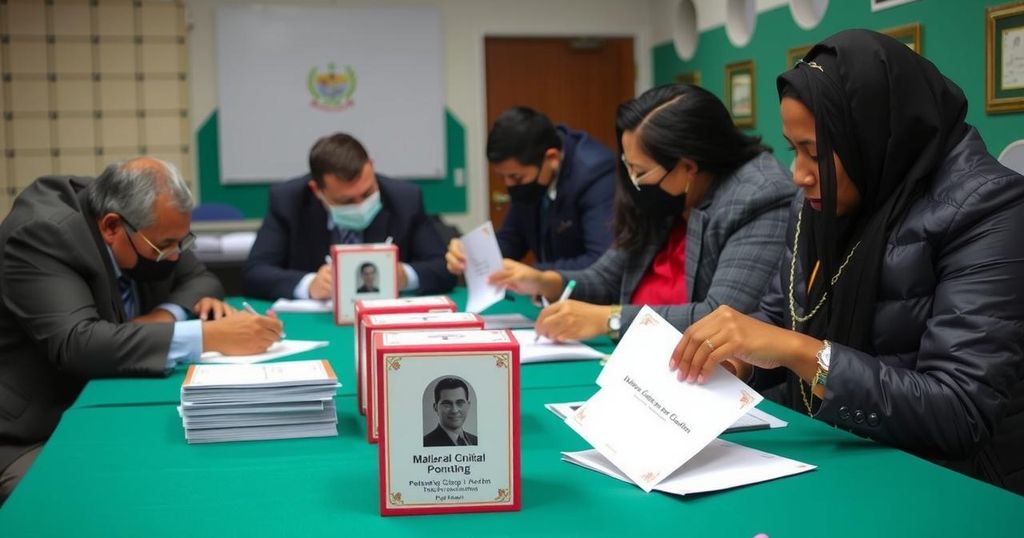Bolivia’s Judicial Elections: A Controversial Test of Democracy

Bolivia is holding judicial elections for its Constitutional Court amid significant controversy and political tension between key figures, including President Luis Arce and former President Evo Morales. Campaigning is officially banned, yet candidates find creative ways to promote themselves. The elections, delayed by political disputes, raise questions about legitimacy and political influence over the judiciary, as only a fraction of the seats are contested, leading many voters to express apathy towards the elections.
In Bolivia, a contentious judicial election is taking place, where voters are tasked with choosing representatives for the Constitutional Court. While campaigning is officially prohibited, candidates have creatively utilized public spaces, such as placing their images on snack packaging to gain visibility. This peculiar electoral process is unique as Bolivia is the only nation globally that elects its highest judicial officials. Critics, however, argue this system undermines democracy, converting judges into political pawns rather than impartial arbiters of justice.
The elections, delayed from 2023 due to political maneuvering, have ignited tensions particularly between President Luis Arce and Evo Morales, his predecessor, over judicial power dynamics. Observers highlight concerns regarding the legitimacy and impartiality of the judicial elections, recalling previous instances where criticism arose from the perceived lack of transparency in candidate selections. As only four of the nine judgeships are contested in this election, many voters remain disillusioned, with growing apathy likely to influence turnout as seen in past elections in 2011 and 2017 when most votes were invalidated.
Supporters of the electoral setup remain scarce, with only the electoral tribunal’s vice president offering faint praise while acknowledging the current legal disputes surrounding the process. The political weight of the judiciary is underscored by the situation, as Morales’ desire to maintain influence through the judiciary remains palpable. As Bolivia embarks on this potentially impactful election, Mexico keenly observes the outcomes, as its own controversial judicial reforms are underway.
Bolivia’s system of electing judges is distinctive as it is the only country engaging in this practice for top judicial positions, an approach that was adopted more than a decade ago. This decision came in response to widespread demands for reforms in the justice system to combat corruption, a theme recently echoed by Mexico’s former President Andres Manuel Lopez Obrador. Despite the intended purpose of promoting democracy, voters have increasingly perceived these elections as a means for political parties to gain control over the judiciary, raising alarms about diminishing checks and balances within the government. Recently, politically charged interventions have also delayed the election processes, illustrating the escalating tensions surrounding judicial reforms, with implications echoing through Latin America.
The upcoming judicial elections in Bolivia reflect deep-seated political fractures and growing distrust among the electorate. With a history of low voter turnout driven by perceptions of illegitimacy, the current elections only exacerbate concerns over the integrity of the judiciary. As various stakeholders observe Bolivia’s electoral process with interest, the implications of this election extend beyond borders, influencing judicial reforms across the region.
Original Source: www.voanews.com








